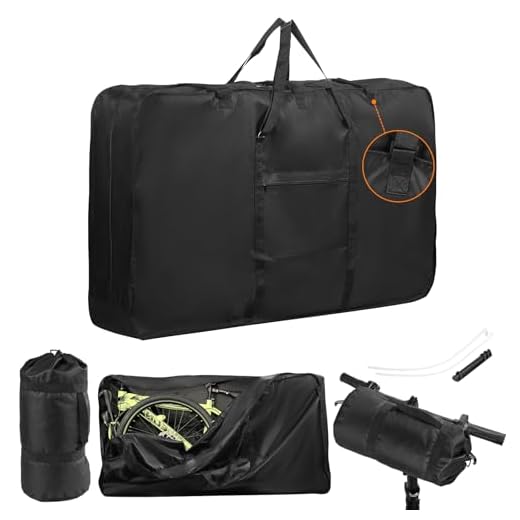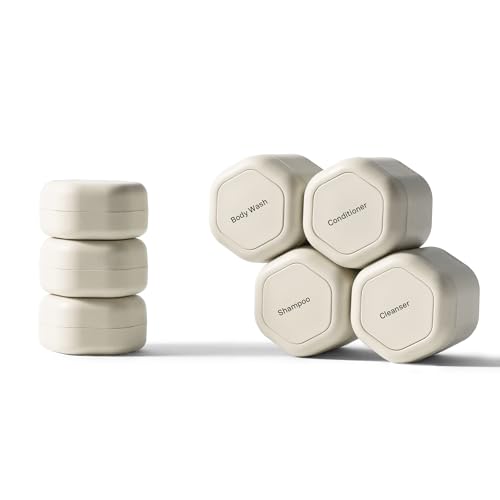



Liquid containers exceeding 100ml are strictly forbidden in hand-carry bags. Ensure that all liquids are within this limit and stored in clear, resealable bags. A maximum of one liter is allowed per passenger, so plan accordingly.
Sharp objects, including knives and scissors with blades longer than 6 cm, are disallowed. For safety, choose travel-friendly utensils or pre-packaged meals that do not require cutting instruments.
Certain electronic devices can also pose a challenge. Loose batteries and power banks exceeding 100 watt-hours are typically not permitted in carry-on bags. Always check specific airline policies regarding portable chargers.
Highly flammable items, such as lighter fluid, fireworks, or certain chemicals, are prohibited in both checked and carry-on bags. Review the full list of hazardous materials to avoid confiscation at security checkpoints.
Finally, be cautious with food items. While many snacks are allowed, fresh fruits and vegetables may be restricted or banned altogether based on destination regulations. Double-check local customs rules before you pack your snacks.
Prohibited Items for Travel Bags
Sharp objects including knives, scissors, and blades must remain at home. These can easily cause harm and are strictly forbidden on flights.
Hazardous Materials
Flammable liquids, like gasoline and lighter fluid, pose a significant risk and belong in storage, not in travel containers. Similarly, explosives, fireworks, and any materials that can ignite are to be avoided entirely.
Restricted Substances
Substances categorized as illegal, such as certain drugs or controlled medications without valid prescriptions, will lead to serious legal consequences. Additionally, sports equipment like bats and hockey sticks may be prohibited due to their potential use as weapons.
Be mindful of fragile items; expensive electronics and antiques can suffer damage during transit. Consider carrying them separately for added protection.
For a smoother travel experience, always double-check the regulations set forth by your specific carrier. Keeping informed will greatly enhance your journey.
Prohibited Dangerous Goods and Items
Explosive substances such as fireworks and flares are strictly forbidden in checked or carry-on bags. These items pose significant risks and are subject to stringent regulations by carriers.
Flammable liquids like gasoline, lighter fluid, and certain solvents must be left at home. These can ignite easily and create hazardous conditions on board.
Chemicals such as bleach, drain cleaners, and other corrosive agents are not allowed. Their potential to harm both passengers and aircraft systems make them unacceptable.
Compressed gases, including aerosols and oxygen bottles, fall into the prohibited category. Rechargeable gas canisters for lighters are also included in this list.
Radiation-emitting devices, such as certain types of batteries and medical instruments, are prohibited due to health concerns and potential safety hazards.
Sharp objects like knives, scissors, and certain sporting equipment must remain outside hand luggage. These items can be used as weapons and are subject to security regulations.
Incoming and outgoing personal and commercial drones must not be transported unless following specific airline protocols. Many carriers require prior permissions for special items.
| Item Type | Specific Examples |
|---|---|
| Explosives | Fireworks, flares |
| Flammable Liquids | Gasoline, lighter fluid |
| Corrosive Chemicals | Bleach, drain cleaners |
| Compressed Gases | Aerosols, gas canisters |
| Radiation Devices | Certain batteries, medical equipment |
| Sharp Objects | Knives, scissors |
| Drones | All types without permission |
Restrictions on Liquids and Gels
Limitations on transporting liquids and gels are strict. Only containers with a maximum capacity of 100 milliliters (3.4 ounces) are allowed. These containers must fit inside a single resealable transparent plastic bag, which should not exceed 1 liter in volume.
Each passenger is permitted one such bag. This regulation encompasses beverages, lotions, creams, perfumes, mascara, and other similar items. Any container exceeding the specified limit must be placed in checked belongings.
Exceptions apply to medications, baby food, and special dietary items, where larger quantities are acceptable, provided they are declared at security checkpoints. Always carry proof of authenticity or prescription for medications.
Be vigilant about checking local regulations for any specific further restrictions, particularly for international flights. Compliance will streamline the security process and ensure a hassle-free boarding experience.
Items Forbidden in Carry-On Luggage
Sharp objects, such as knives, scissors, and razor blades, are strictly prohibited in your onboard bag. Consider alternatives like safety razors or disposable options for your personal grooming needs.
Explosive materials, including fireworks and flares, are not allowed in any carry-on. Always check local regulations before carrying any items that may be classified as hazardous.
Self-defense items such as pepper spray or personal stun guns are also banned. Look for self-defense options that comply with travel guidelines.
Sports equipment, particularly items that can inflict injury, like baseball bats or hockey sticks, are unsuitable for cabin transport. Opt for suitable alternatives that provide entertainment without violating regulations.
Flammable liquids, aside from the liquid restrictions previously outlined, are forbidden. An understanding of how can a flame test identify an unknown element may also be beneficial if you work with such materials.
Keep in mind that certain electronic devices, such as laptops, must be easily accessible during the security screening process. Ensure your devices are charged, as security personnel may ask you to power them on.
For travel ease, selecting suitable bags is vital. Research the best luggage name brands that offer durable options for your needs.
When planning trips to picturesque locations like Greece, it’s wise to consider the best luggage for Greek island hopping. This ensures compliance with rules while enjoying your travels.
Hazardous Materials and Chemicals
Transport of hazardous materials and chemicals is strictly controlled. Items such as explosives, flammable liquids, toxic substances, and corrosive agents are prohibited on flights. Common household products like certain cleaning agents, pesticides, and paint thinners fall into this category and must be left behind.
Specific Items to Avoid
Do not attempt to carry items such as gasoline, propane, or other fuels. Commercially available fireworks, certain aerosols, and even self-defense sprays like pepper spray are also restricted. Check labels carefully; even some products that may seem benign can be categorized as dangerous depending on their ingredients.
Emergency Guidelines
In case of doubt, consult the airline or your local transport authority for a comprehensive list of forbidden materials. Always declare items if there’s uncertainty regarding their classification. Adhering to these regulations ensures safety for all passengers and crew members on board.
Regulations on Sporting Equipment
When traveling with sports gear, it’s vital to adhere to specific guidelines established by carriers. Always verify with your chosen airline for precise limitations on size and weight, as these can significantly differ.
General Guidelines
- Items such as bicycles, surfboards, and skis are often subject to additional fees due to their special handling requirements.
- Many airlines allow sports equipment as part of your checked baggage allowance, but dimensions may still apply.
- Use protective packaging to avoid damage and ensure safety for ground staff handling your gear.
Sport Specific Regulations
- Bicycles: Typically require removal of pedals and handlebars, and must be in a sturdy box.
- Surfboards: Sizes above a certain length may incur additional charges; check the maximum allowed size.
- Golf clubs: Often permitted in dedicated bags; some airlines impose a weight limit on the golf bag including the clubs.
- Skis and Snowboards: May need to be stored in a specific type of bag and could incur oversize fees.
Adhere strictly to these recommendations to ensure a smooth travel experience while transporting your sporting equipment. Always double-check airline policies before departure to avoid surprises and ensure compliance.
Country-Specific Banned Items
Each nation implements specific restrictions that travelers must be aware of. For instance, in Australia, importing soil is strictly prohibited to prevent the introduction of harmful pests and diseases.
Germany bans the transport of certain foods, such as raw dairy products and homemade goods, due to strict food safety laws. Travelers should familiarize themselves with local laws to avoid penalties.
Examples by Region
In the United States, items like fireworks and certain knives are not allowed in checked baggage. Meanwhile, in Japan, the importation of most fruits and vegetables is prohibited to protect local agriculture.
Preparation Tips
Before traveling, review the specific regulations of your destination. Contact the local embassy or check government websites for the latest guidelines on prohibited items. Proper preparation can save time and avoid complications upon arrival.
FAQ:
What items are prohibited in airline luggage?
Airlines restrict certain items due to safety and security regulations. Common prohibited items include explosive materials, flammable substances, sharp objects like knives or scissors, and hazardous materials such as chemicals and batteries. Additionally, many airlines do not allow aerosol containers and items that could be used as weapons. Always check with your airline for a specific list of banned items before your trip.
Can you bring food in your luggage on a plane?
Most airlines allow passengers to bring food in their luggage, but there are restrictions on certain types. Solid foods like sandwiches and snacks are generally fine, while liquids, including sauces and soups, must comply with liquid restrictions—typically 3.4 ounces or less in carry-on bags. It’s also important to consider customs regulations if traveling internationally, as some countries prohibit specific food items. Therefore, check the rules of your destination country before packing food.
What should I know about bringing medical supplies on a flight?
If you need to bring medical supplies, you are usually allowed to carry them in both checked luggage and carry-on bags. Essential medications should ideally be in their original packaging with your name on the label. If your medication is a liquid, it might be subject to liquid restrictions unless you inform security personnel. In addition, it’s wise to carry a doctor’s note or prescription to avoid any potential issues with security. Always check the airline’s policy on medical supplies, as they may have specific requirements.








